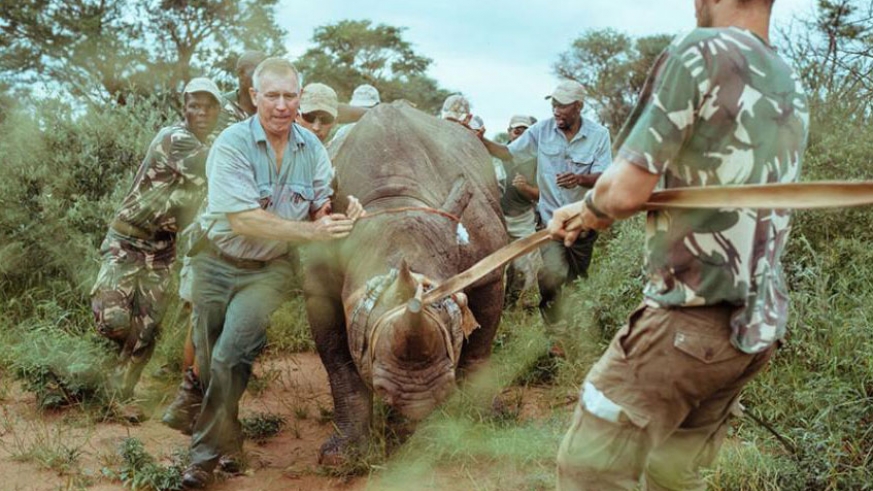five eastern black rhinos that European zoos donated to Rwanda are expected to arrive in the country next week, officials have said.
The rhinos, which belong to a critically endangered subspecies, include three females and two males.
They are from the Safari Park Dvur Kralove zoo in the Czech Republic, Flamingo Land in Britain, and Ree Park Safari in Denmark, and have lately all been in the Czech park to get used to each other ahead of transportation to the Akagera National Park.
Eugene Mutangana, the Head of Conservation at Rwanda Development Board (RDB), told The New Times that the rhinos will arrive on Sunday, adding that the reintroduction of black rhinos in Rwanda will bring considerable benefits the country.
“Even though we already have rhinos from South Africa, to ensure a healthy population, you have to bring in species that is from a different group to allow integration,” he said.
The more you bring in rhinos to integrate, he added, the more the assurance of strength of genes that are strong and resistant.
“That is the role the five rhinos from Europe are going to play. With time, they are going to be released and integrate with existing rhino population in the park and we anticipate metapopulation,” he noted.
A metapopulation consists of a group of spatially separated populations of the same species which interact at some level.
The news of the largest ever translocation of the black rhinos from Europe to Africa was first announced last year by the European zoos.
Mutangana said that, once in Rwanda, the rhinos will initially be kept separate from 19 eastern black rhinos that were translocated to the same park from South Africa in 2017.
“These are zoo animals, they are not used to wilderness. This is why they will be kept in a boma and later on move them to a small sanctuary. What we expect to be released in the wilderness totally are their off-springs because then we are assured that they can easily integrate,” he noted.
The black rhinos will be returning to their natural habitat in Akagera National Park in eastern Rwanda, where an entire rhino population had been wiped out in the immediate aftermath of the 1994 Genocide against the Tutsi.
Sarah Hall, the Marketing Manager of Akagera National Park, says they are not currently focusing their attention on marketing black rhinos as they are not easy to reach since they like to hide and tend to be aggressive.
“They are not the easiest species to see because they are generally solitary,” she said.
“People are definitely excited about the reintroduction of black rhinos but we are primarily doing it for conservation reasons. Black rhinos are fewer than mountain gorillas on the continent so we have a responsibility to provide a safe place for them to grow,” she added.
Unlike white rhinos, which Rwanda currently doesn’t have, black rhinos like thick bush, are secretive and tend to be more aggressive.
However, Mutangana said that there were expectations that those that will be kept in a zoo will be accessed by tourists in Akagera National Park.
There are only about 900 black rhinos left in the world.
Akagera was historically home to a diversity of large African mammals, many of which were hunted to local extinction over recent decades.
Back in the 1970s, more than 50 black rhinos thrived in Akagera National Park, but their numbers significantly dropped as poaching spiked over the years until the last confirmed sighting of the subspecies in 2007.
But in recent years the Government and managers of the park have stepped up efforts to reverse the trend and turn it into a top destination again.
The first major step in that direction was taken in 2015 when a pride of seven lions was translocated to the park from South Africa, the first time lions were returning to Rwanda after a 20-year absence.
And, in May 2017, 18 Eastern Black Rhinos were also translocated from South Africa to the savannah park.
Now Akagera is home to the Big Five – lions, elephants, leopards, rhino, and buffalo – and a major tourist attraction.
Source: The New Times-Rwanda









